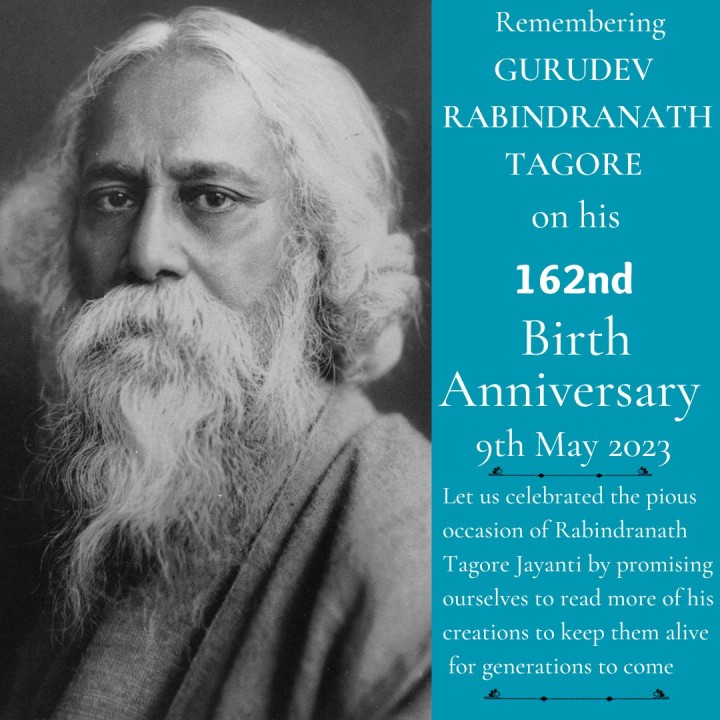
"Discovering the Life and Legacy of Rabindranath Tagore: The Poet, Philosopher, and Social Reformer"
“The problem is not how to wipe out all differences, but how to unite with all differences intact.”
Gurudev, another name for Rabindranath Tagore, was a legendary Bengali poet, philosopher, musician, and polymath. Tagore produced a wide variety of literary and creative works. He is best known for his poetry, which has received widespread translation and acclaim for its lyrical beauty and spiritual intensity.
His most well-known work is the "Gitanjali" (Song Offerings) collection of poems, which made Tagore the first non-European to earn the Nobel Prize in Literature in 1913.
Tagore wrote numerous plays, essays, short stories, and novels in addition to poetry. His writings typically dealt with issues of love, nature, spirituality, and human relationships. The novels "The Home and the World," "Gora," and "Chokher Bali" are some of the prominent ones.
Tagore was a novelist as well as a social reformer and supporter for Indian independence. In order to combine Western and traditional Indian education, Tagore founded Visva-Bharati University in Santiniketan.
Rabindra Sangeet is the collective name for the more than 2,000 songs that Tagore composed. A talented musician, Tagore. His music has had a considerable influence on the local cultural scene, and his compositions continue to enjoy popularity in Bangladesh and India. Rabindranath Tagore produced important literary, musical, and social reform contributions that still have an impact on Indian and global culture today.
He is revered as a literary great in Bengali and beyond, and readers are still moved by his writings because of how well he understands the human condition.
Rabindranath Tagore's dramatic works: Rabindranath Tagore started writing plays at the age of sixteen. His first play, Valmiki Pratibha, was written when he was 20 years old. Written in 1890, Visarjan is considered one of the best plays. He wrote a lot of stories between 1891 and 1895. This span of four years is referred to as Rabindranath Tagore's "Sadhana" phase.
Kabuliwala, Kshudita Pashan, Atithi, and other of his most well-known short stories are among them.Without a doubt, he was a wonderful novelist.
Eight books and four novellas were produced by him. Char Odhay, Chaturanga, Noukadubi, and Shusher Kobita are some of Tagore's best-known pieces. In Ghare Baire, the religious zeal and increasing terrorism of the Swadeshi Movement are criticised. Gora, on the other hand, presents controversial issues regarding the distinctiveness of India.
The literary, musical, and social reform accomplishments of Rabindranath Tagore continue to influence Indian and world culture today. His works continue to inspire generations with their profound insights into the human condition, making him regarded as a towering figure in Bengali and international literature.